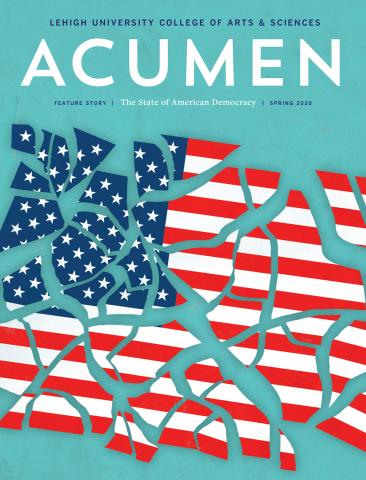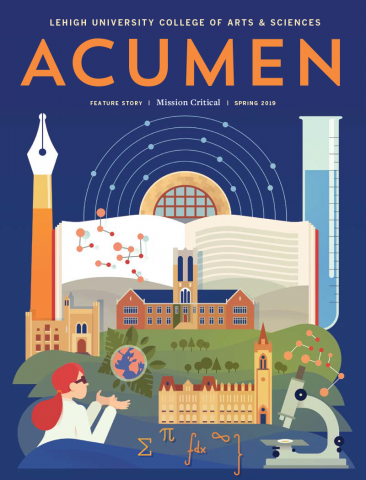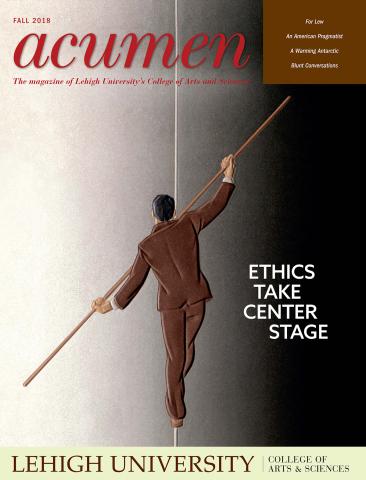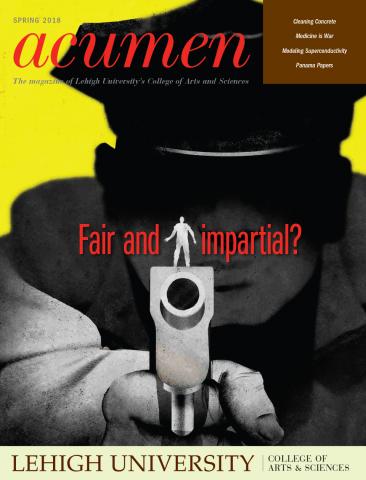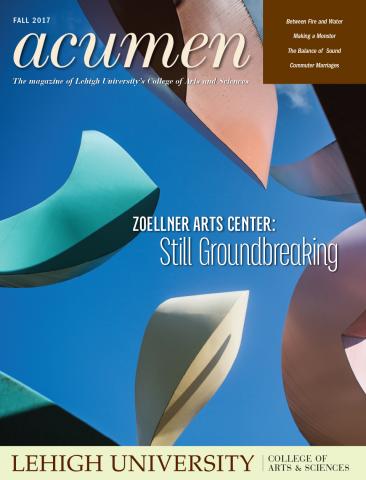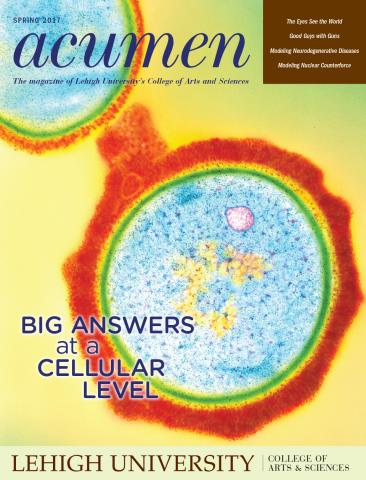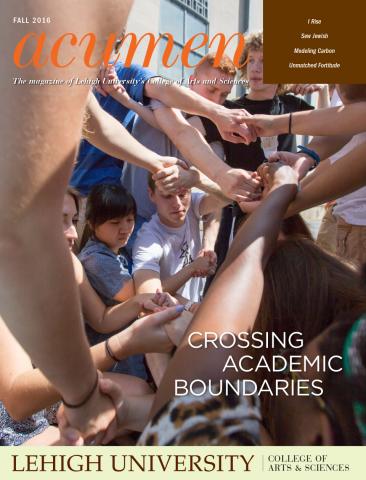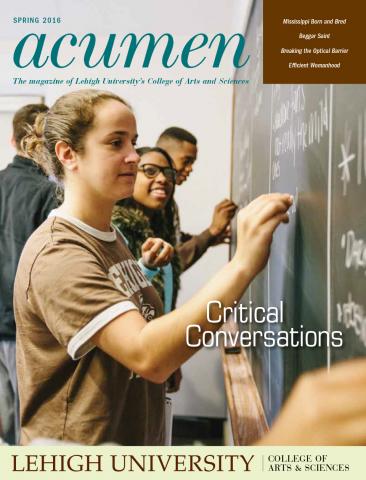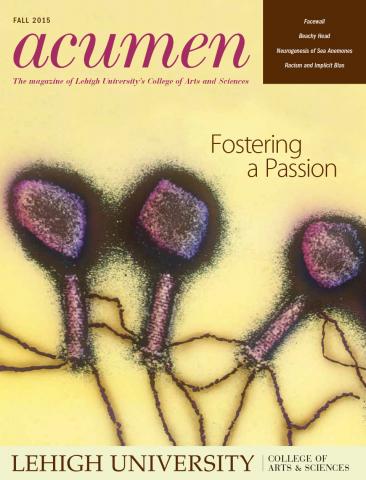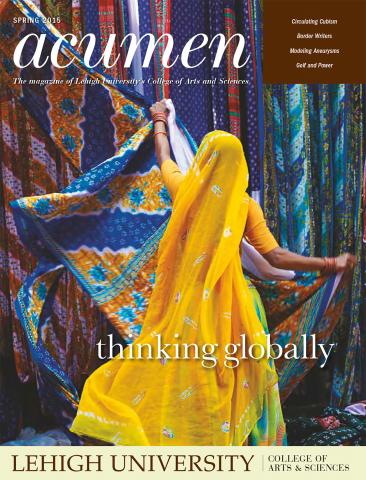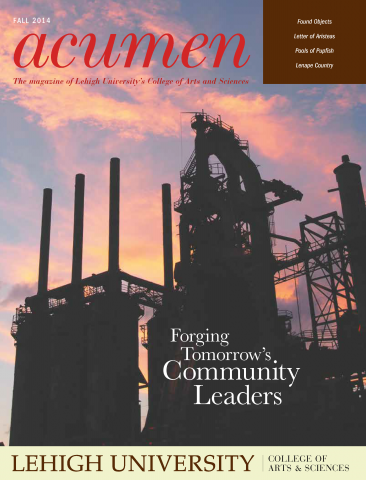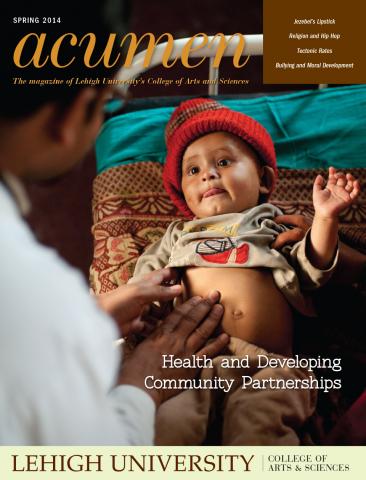
After a 10-year-career in banking, Marc Falato ‘87 considered his future. One suggestion -- theater producing -- was not on his radar, but the self-direction appealed to him. It involved risk, but also artistic vision.
Sixteen years later, Falato has won two Tony Awards (Best Revival and Best Musical), and currently is a producer of the inventive Beetlejuice, a musical adapted from the popular Warner Brothers movie. He has found his role. He sees producing as a way to elevate the arts and help audiences engage with significant issues.
His personal journey, he notes, shows how a college major can contribute to a career, but not limit it. Growing up in East Brunswick N.J., Falato enjoyed acting and stage lighting in school and summer camp, but considered studying biochemistry in college. At Lehigh he majored in “foreign careers,” a major which no longer exists, but combined aspects of international relations and economics. He landed a job at the Federal Reserve Bank in New York, earned an MBA at New York University, returned to banking and worked in New York and Asia for 10 years.
In 2003, at a career crossroads, he recalled, “I was at that point when I didn’t want to work for someone else. I wanted to do something creative, and I thought about what that might be. Producing was a good fit.”
Producing calls on the skills of relationship-building to raise capital and to assemble the right team. A crash course on producing provided lessons on aspects like marketing, budgets and legal issues, and also networking. A speaker at the course asked Falato to attend the reading of a new play. That play never made it to Broadway but he was asked if he had an interest in a revival of Glengarry Glen Ross, David Mamet’s study of “ambition, success and what happens to a man who is no longer a winner,” as Falato describes it.
By this time, Falato had formed a producing company, ZenDog Productions, a name that honored his Golden Retriever. The company includes producing partner Pun Bandhu. “It was a little more difficult to raise funds than I anticipated,” he recalled. “Commercial theater is a relatively risky proposition, and my network of lawyers and bankers are a generally risk-averse group. But they knew me, and trusted me.”
Glengarry Glen Ross won the Tony Award for Best Revival in 2005, and Falato was at the award ceremony. “It was sort of very surreal sitting in the audience, and when they said ‘The winner is . . . ’ it went into slow motion. I remember hearing Glengarry Glen Ross and it took a moment to sink in, and then I felt a little gob smacked.”

Falato had found what he was looking for. “There is a certain amount of altruism involved, because you want to see the art form continue. I have a high bar. Productions need to have the potential for financial success, yes, but an artistic integrity. I also feel a strong degree of fiduciary responsibility in regard to our investors. I hope to find projects that are impactful.”
What he found next was Spring Awakening, a groundbreaking musical about teens coming of age in a provincial German town, based on an 1891 Frank Wedekind play. He saw it first off-Broadway at the Atlantic Theater Company. “Fifteen minutes into the show I knew it had the ingredients I feel good about,” he said. “It may have been a little too provocative for some, but I had a gut feeling. What sealed the deal was the concept of parental abdication of responsibility. The parents did not communicate with their teenagers, and I didn’t think a lot had changed in more than 100 years. Adults are still reluctant today to discuss taboo subjects.”
The contemporary music by Duncan Sheik brought new audiences to the theater, younger ticket buyers who could relate to the characters. Many shared with the actors and creative team that the show impacted their lives. “One struck us – a young person who had written he had considered suicide, and until the show, he had thought he was alone. It was impactful. There were many meaningful letters,” Falato said.
Spring Awakening in 2006 was among the first musicals to use social media marketing, and ZenDog helped develop strategies and promotions. The show, which played a two-year run on Broadway, recouped its investment in 12 months.
A touring production came to the Zoellner Arts Center in 2011, and Falato spoke at a reception for his class. More recently, last spring, Lehigh student actors performed the show. Falato attended rehearsals, met with student actors and designers and offered a talkback with other panelists. “Having Lehigh do it made it extra special,” he said. “Students requested it. It was nice to see they were getting as much out of the show today as the original.”
Zoellner did not exist when Falato was a student. Today he supports the center and is a member of the Zoellner Friends Committee. “What I love about Zoellner is it doesn’t just serve the campus, but area schools and audiences. The programming is diverse.”
Lehigh, he said, “is great for preparing students for the real world,” he said. “Any subject at Lehigh does a great job at teaching students to think. The skills I honed at Lehigh helped me in everything. I can look at a situation from more than one perspective, poke holes and analyze.”
As a producer on Beetlejuice, Falato has called upon those critical thinking skills, especially as he awaits word on the show’s future. Unexpectedly, while gaining audiences last fall, the production was notified it would have to leave its theater by June to make room for an upcoming show.
Beetlejuice has otherwise been a good experience for Falato. “I really enjoy seeing how excited the audiences get,” he said, noting some arrive in costume to show their devotion. “It’s a fun show. But at its core, Beetlejuice is about being different and the importance of home and family.”
ZenDog also has produced a film, Real Fake: The Art, Life and Crimes of Elmyr de Hory, about a prolific art forger. “The subject is a flamboyantly brave artist. who always painted ‘one more’ in the style of great masters,” said Falato. “If Matisse painted a series of three, Elmyr would paint numbers four and five. The film asks some interesting philosophical questions… what is art? Does it matter who painted it?” The 2017 documentary film is available online.
Meanwhile, Falato is busy managing his portfolio of investments, with producing as part of the portfolio. Until the next “right” project comes along, he has come to appreciate what theater offers to audiences. “In the performing arts,” he said, “there is a certain sense of humanity. There is nothing like laughing and crying together, it creates a sense of community. There is nothing like having that experience with other people.”




















